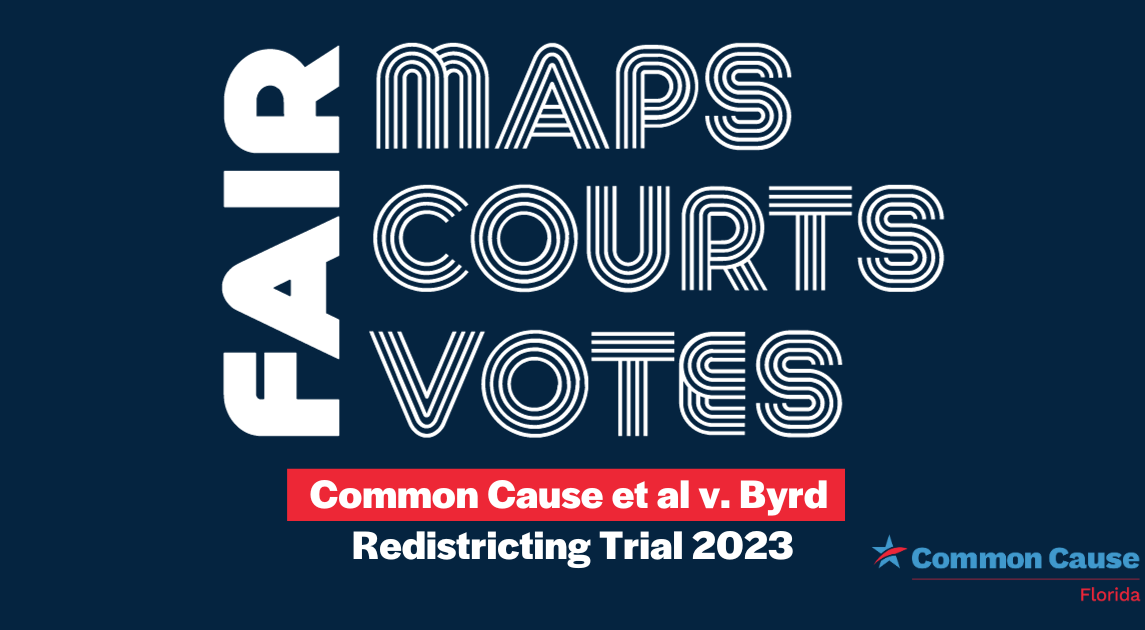Common Cause v Byrd: Federal Redistricting Trial Wraps Up

Common Cause Florida’s federal redistricting trial adjourned this week, after 4 days of hard-hitting testimony about the Governor’s intentional racial discrimination against Florida voters in his congressional map.
Governor DeSantis strong-armed the legislature into approving a congressional map that intentionally denies Black voters in Florida their right to elect candidates of their choice, in violation of the 14th and 15th Amendments to the U.S. Constitution.
We have made a strong case that clearly demonstrates several key factors that courts use to assess race-based discrimination, including:
- There is a discriminatory impact: For the first time in more than 30 years, Black voters in north Florida have lost the opportunity to elect a candidate of their choice. Indeed, the candidates that the Black community preferred lost in north Florida in 2022 and there is no longer any Black congressperson representing north Florida.
- There is a long history of racial discrimination in Florida: From Reconstruction and Jim Crow all the way up to today’s voting restrictions aimed at communities of color, the erasure of Black history from our classrooms, and attacks on diversity, equity and inclusion initiatives.
- There was a less-discriminatory alternative available: The legislature drew a map that retained a Black opportunity district in north Florida AND addressed all of the Governor’s stated concerns, but the Governor vetoed it anyway.
- There were multiple departures from normal procedure: From the Governor’s unprecedented pressure campaign, veto of the legislature’s proposed maps, and production of his own maps to the legislature passing a map with a back-up map, and more.
Common Cause Florida’s Program Director took the stand on September 27th to tell the court about our membership in the impacted districts, why this case is important to us and our work, and the increasing hostility of the state and private citizens against voters and voting rights organizations in Florida.
Sitting in the courtroom, our Florida team was shocked and saddened to hear the Governor’s legal team and witnesses dismiss Florida’s legacy of racial discrimination and make circular arguments to avoid saying what we know is true: the Governor didn’t want a map where Black voters in north Florida could elect a representative of their choice.
But the Governor doesn’t get to decide which laws he wants to follow and which laws he wants to ignore. And we believe the court should hold him accountable.
So, what happens next?
We hope to see a ruling before the end of the year. If the court rules in our favor, they could order the legislature to draw a new congressional map before the 2024 election. Even if we win, we still have a battle ahead to make sure the legislature complies with the ruling and Black voters’ rights to fair representation are respected.
